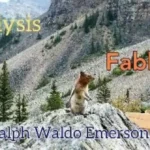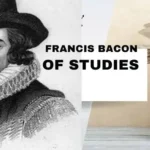Common Grammatical Terms Definition with Examples
List of Common Grammatical Terms:
Subject:
The subject is a word or group of words that usually indicate the person or thing about which something said is called Subject. Predicate:
The part of sentence which tells something about the subject is called the Predicate.
Example: Raju is going to Germany.
Raju — Subject
Is going to Germany– Predicate.
Cognate Object:
Intransitive Verb sometimes take after them an object similar in meaning to the verb. Such an object is called Cognate Object.
Example: Mother dreamt a strange dream.
Retained Object:
When verbs that take both a direct and an indirect object in the Active Voice are changed to the Passive, either object may become the subject of the Passive while the other object is retained and is described as Retained Object after a Passive Verb.
Example: Mr. Sengupta teaches us Grammar. (Active Voice)
Grammar is taught us by Mr. Sengupta. (Passive Voice)
You may also like:
Mood:
Mood is the mode or manner in which the action denoted by the verb is represented. There are three Moods in English– Indicative, Imperative and Subjunctive.
Case:
According to J.C. Nesfield, the relation in which a Noun or Pronoun stands to some other words by which the relation is indicated is called its Case.
Nominative Case:
When a Noun or Pronoun is used as the agent or subject of a verb, it is said to be in the Nominative Case.
Example: Pulak wants his mother.
Here Pulak is in the Nominative Case because Pulak is the subject of the verb ‘wants’.
Objective Case:
When a Noun or Pronoun is the object to a verb or a preposition it is said to be in the Objective Case.
Example: Pulak wants his mother.
Here mother is Objective Case.
Possessive Case:
Possessive Case denotes ownership or some other relationship.
Example: This is Pintu’s umbrella.
Vocative Case:
Vocative Case is usually a case of adress for the purpose of addressing or calling a person or thing.
Example: Come here Thomas.
Verb:
A Verb is a word that is used for ‘being, having or doing something.’ Verb comes from the Latin ‘Verbum’ meaning ‘word’. It is so called because it is most important in a sentence. Transitive Verb:
A Transitive Verb is a verb that denotes an action which passes over from the door or subject to an object.
Example: Raju led the army.
Intransitive Verb:
An Intransitive Verb is a verb that denotes an action which does not pass over to an object, or which expresses a state or being.
Example: The baby sleeps. (State)
There is a flaw in this diamond. (Being)
Quasi-Passive Verb:
There are some Transitive Verbs which are active in form but passive in sense. They are called Quasi-Passive Verbs.
Example: Honey tastes sweet. (Active)
Honey is sweet when it is tasted. (Passive)
Copulative Verb:
An Intransitive Verb which requires a subjective complement (to relate to the subject) to make the sense complete is called the Copulative Verb.
The word or words which an Intransitive Verb requires to make the sense complete is called the Subjective complement.
Example: Mousumi is ill. She looks tired.
Event Verb:
A verb that denotes an event, a happening having a definite beginning and an end is called an Event Verb.
Example: He bathes in the Ganges everyday.
State Verb:
A verb which denotes a state of affairs which may not have a definite beginning or an end and which continues over a period of time is called a State Verb.
Example: We are Indians. I felt approaching footsteps.
Strong Verb:
Strong Verbs are those which are able to make their padt form by merely changing the inside vowel of the present form without having anything added.
Example: come, write, know etc.
Weak Verb:
Weak Verbs are those which form their Past Tense by adding ‘ed, en, d.
Example: Want, call, take etc.
Auxiliary:
It is a ‘helping verb’ used to make the form of another verb.
Example: be, have, can, could, shall, will, must, should, ought, used, dare
Modals:
The Auxiliaries can, could, may, might, shall, should, must, ought, used, need, dare are often distinguished as Modal Auxiliaries or Modals. Modal Auxiliaries are generally used to indicate the mood, manner of the action of the verb.
Defective Verb:
The Modals can, could, may, might, shall, should, would, must, ought are termed Defective Verbs because some parts are wanting in them. They have no ‘s’ in the third person singular, no ‘ing’ or ‘ed, en’.
Anomalous:
The Auxiliaries are called Anomalous or Special Verbs because they are the only verbs that come before the subject in Interrogative form.
Example: Can you swim?
Verbals or Non-finite Verbs:
The verbs which are not limited by number and person of their subjects or time are called Verbals or Non-finite Verbs.
Verbals are divided into three classes— Infinitive, Participle, Gerund.
Infinitive:
Infinitives are such Verbals that are formed by adding to before the Verb.
Example: Raju came to play.
Simple(Noun) Infinitive:
The Simple (Noun) Infinitive does the work of a Noun.
Example: To love man is to love God.
Gerundial Infinitive:
The Gerundial Infinitive does the work of an Adverb or an Adjective.
Example: Vidyasagar went to see his mother.
Split Infinitive:
Split Infinitive is the syntactic habit of placing an adverb between ‘to’ and a verb in an infinitival structure.
Example: This will enable them to successfully compete with others.
Participle:
A Participle is that form of the verb which partakes of the nature both of a verb and of an adjective.
Example: I met a girl carrying a basket of flowers.
Present Participle:
The Present Participle is formed by adding ‘ing’ to the base form of a verb and represents an action as going on.
Example: Hearing the noise the boy woke up.
Past Participle:
The Past Participle is followed by adding ed, d, en to the base form of a Verb and indicates an action already completed.
Example: Driven by hunger the man stole a piece of bread.
Perfect Participle:
The Perfect Participle is formed by prefixing ‘having’ to the Past Participle of the verb and it represents an action as completed at some past time.
Example: Having rested we continued our journey.
Gerund
A Gerund is that form of the verb which ends in ‘ing’ and has the force of a Noun and a Verb.
Example: Giving is better than receiving.
You May Like To Read More:












